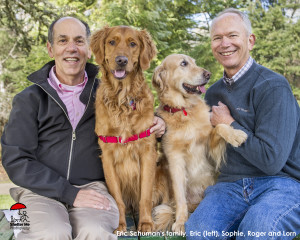I Am Starr King: Interview with Eric Schuman
 Eric Schuman
Eric Schuman
Annual Donor
Intersession Student
Can you tell us about your relationship with Starr King?
I attended my first general assembly in Boston in 1969 and I wrote to Bob Kimball, who was President of Starr King at the time, and asked to meet with him. We had lunch together on a park bench at Boston Common and what Bob told me was that the number of applicants to the school was so high that the decision had been made not to admit anyone who was right out of their undergraduate studies. He said “we’re not going to accept you, but I’d love if you would apply again in a few years.” So that’s how it started.
Instead of attending seminary I became a community organizer in rural Illinois and Mississippi, and I became interested in medicine through my work with free clinics. I enrolled in a Physician Associate program and practiced medicine for 40 years.
But in spite of the about face that I made in my career choices, I never lost my interest in attending Starr King. I think had the MASC program been offered in 1970 it would have fit me to a T. My connection to the school since that time has primarily been as a donor, as someone providing financial support. Then in 2014, being mostly retired as I am now, the opportunity arose to fulfill a lifelong dream and I registered for the Unitarian Universalist history course that was offered at the January intersession this year. I was disappointed when Susan Ritchie resigned because I had heard such great things about her, but my decision to attend the class with Meg Richardson as the teacher was really one of the best choices that I’ve made.
The week I spent with the six seminarians in that intensive was one of the most spiritually enriching experiences in my life. The teacher, Meg, made us work very, very hard. We each took turns teaching our peers about aspects of Unitarian and Universalist history, and as a result we bonded in a way that could not have been possible in a conventional teaching format. I feel very fortunate to count each and every one of my fellow students as friends and I can hardly wait to follow them in their individual careers.
Why did you decide to enroll in the January 2015 intersession?
I never gave up my desire and lifelong wish to attend Starr King. What I gave up was my desire to become a parish minister. The school’s curriculum and educational philosophy appealed to me in 1968, and it continues to to this day. After I retired from full time medical practice in 2011, I began to visit Starr King each year during trips to the Bay area. I got to know students, and I met with Rebecca Parker and some faculty members. I realized that in 45 years, my affinity for the school hadn’t waned. I looked at intersession classes and finally saw one I was interested in attending.
What was it like for you as a special student at the school?
I had no idea what to expect. When you think about the time – January 2015 – in Starr King’s history, there are few weeks that could have been more tumultuous than the week I landed there. The first day I was in class was the day of the first All School Meeting regarding the crisis which had begun the previous year.
Being the oldest student in the class, it was refreshing to me to attend a serious academic pursuit with fellow seminarians whose ages span from their mid 20s to their early 60s. I found that each of them had unique gifts, unique histories, which made them top notch teachers, each in their own right. And that’s what Meg Richardson had us do. We had two or three hours of homework every night and had to prepare to teach the class the following day on a particular aspect of Unitarian or Universalist history. Learning from my fellow seminarians was challenging. It was exciting and it was fun. But mostly it was a spiritually enriching time that I have never experienced in that way before.
What inspires you to support Starr King as a donor?
Starr King’s educational philosophy is unique. The way it prepares seminarians to go out into the world, either into parish ministry or into social justice work, is not matched by any other school that I know of in the western world. Its philosophy excited me in 1968 and it excites me even more today. It is inspiring. It is almost, to me, on the edge of your seat learning. And that’s the way I learn the best. So I think I’m a little prejudiced because I was inspired by something that appealed to me as a style of learning, and it still does.
The reason I give to the school is because I believe in ministry very, very strongly as a layperson and I want to support seminarians who will do great things in the world, whether it is in a parish or in the wider community through anti-racist efforts or fighting other kinds of oppression.